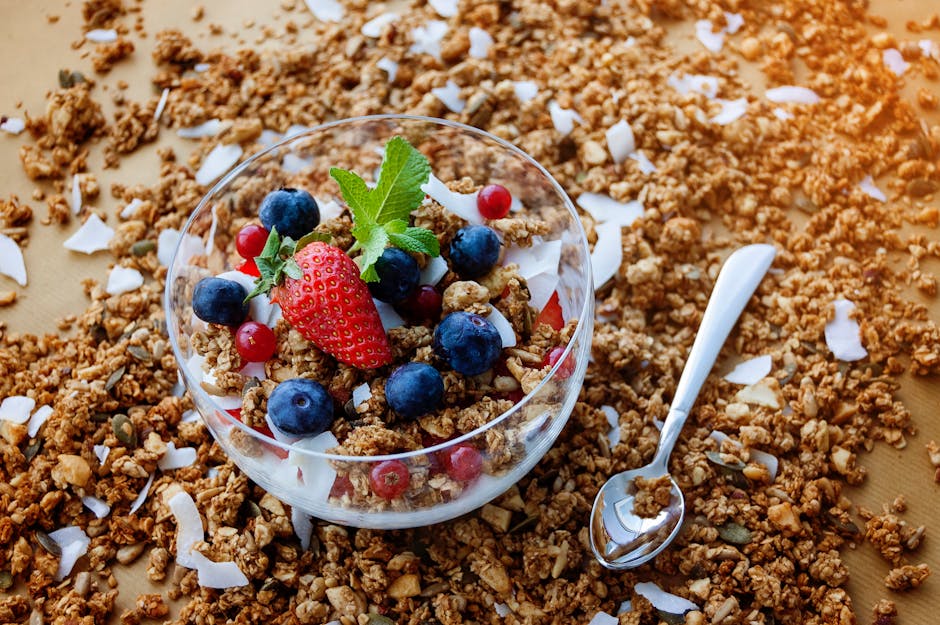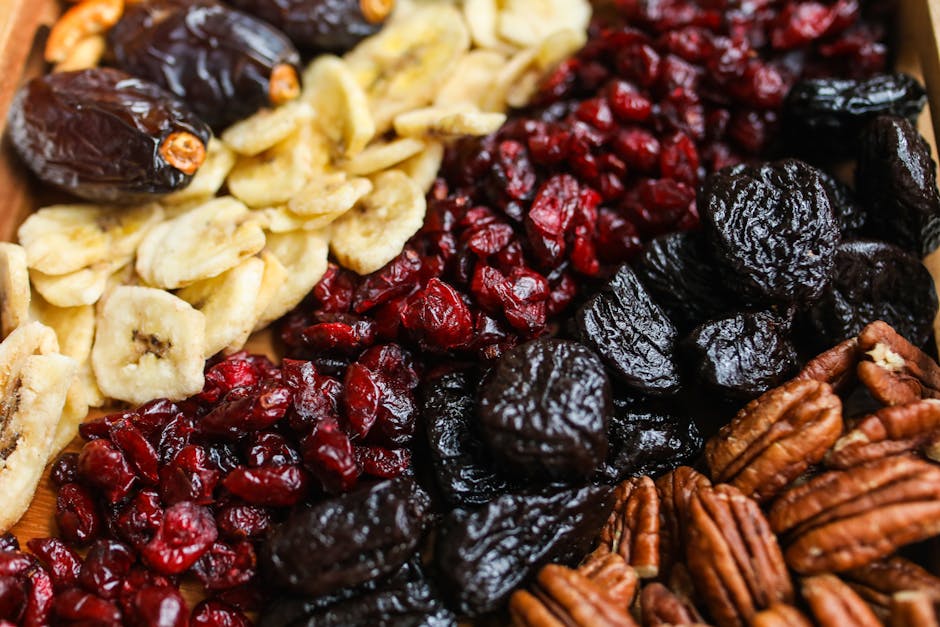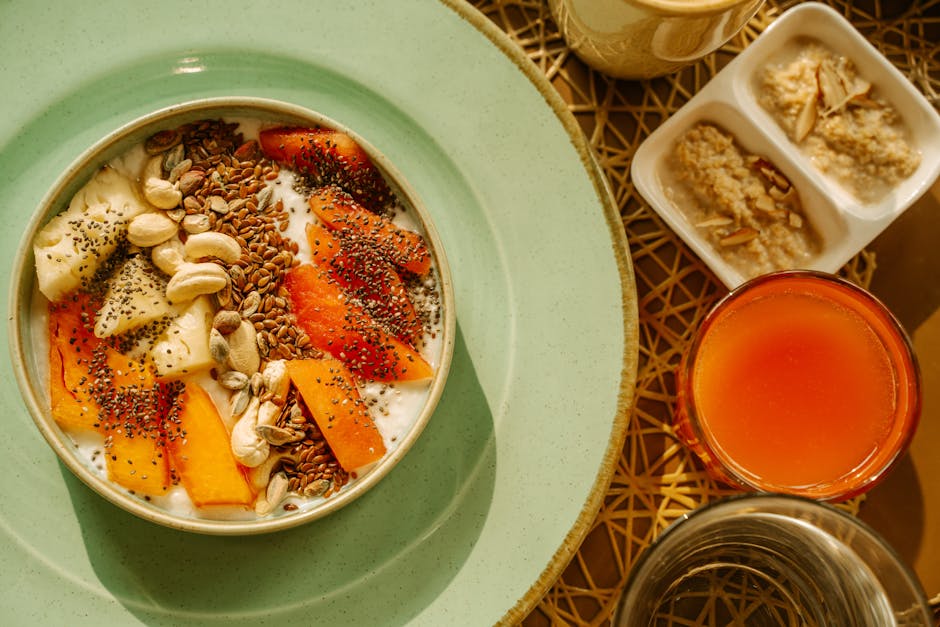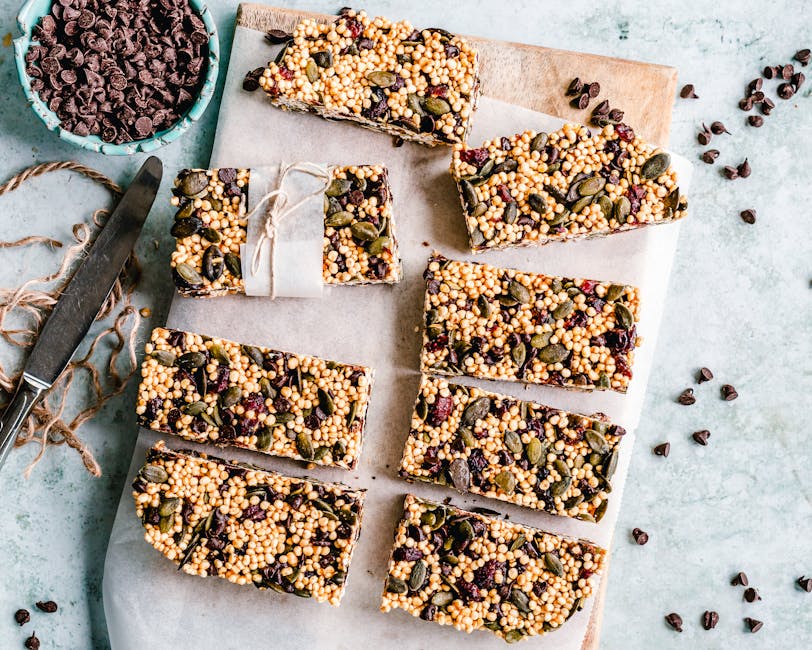Exploring the Best Nuts and Seeds for Reducing Inflammation
Welcome to a deep dive into the world of nuts and seeds, where we uncover the powerful potential of these small but mighty foods in reducing inflammation. Inflammation is a natural response by the body to fight off harmful stimuli, but when it becomes chronic, it can lead to various health issues such as heart disease, diabetes, and arthritis. Fortunately, nature has provided us with an array of nuts and seeds that possess anti-inflammatory properties, making them valuable additions to a healthy diet. Let’s unravel the science behind the best nuts and seeds for reducing inflammation and discover how they can positively impact our overall well-being.
The Role of Inflammation in the Body



Before delving into the specifics of nuts and seeds, it’s essential to understand the role of inflammation in the body. Inflammation is a vital part of the immune response, helping the body heal and defend itself against injuries and infections. However, when inflammation becomes chronic, it can wreak havoc on our health, leading to a host of chronic conditions. Chronic inflammation is believed to be at the root of many diseases, including cancer, Alzheimer’s, and autoimmune disorders.
Now, let’s explore how certain nuts and seeds can help mitigate inflammation and potentially prevent the onset of these debilitating conditions.
Almonds: Nature’s Anti-Inflammatory Nut
Almonds are not only delicious but also packed with nutrients that have been shown to reduce inflammation in the body. These nuts are rich in monounsaturated fats, antioxidants, and fiber, all of which contribute to their anti-inflammatory properties. Studies have demonstrated that almonds can help lower markers of inflammation, such as C-reactive protein (CRP), in the blood.
Additionally, almonds are a good source of vitamin E, an antioxidant that helps protect cells from damage caused by inflammation. Adding a handful of almonds to your daily diet can be a simple yet effective way to combat inflammation and support overall health.

Walnuts: Omega-3 Rich Superfood
Walnuts are often touted as a superfood due to their high omega-3 fatty acid content. Omega-3s are known for their anti-inflammatory properties and are essential for maintaining optimal health. Research has shown that walnuts can help reduce inflammation in the body by decreasing levels of inflammatory markers.
In addition to omega-3s, walnuts are a good source of antioxidants, fiber, and polyphenols, all of which contribute to their anti-inflammatory effects. Including walnuts in your diet can help lower inflammation and support heart health, brain function, and overall well-being.
Flaxseeds: Rich in Omega-3s and Fiber
Flaxseeds are another nutritional powerhouse when it comes to reducing inflammation. These tiny seeds are one of the best plant-based sources of omega-3 fatty acids, specifically alpha-linolenic acid (ALA). Omega-3s are well-known for their anti-inflammatory properties, making flaxseeds a valuable addition to an anti-inflammatory diet.
Furthermore, flaxseeds are rich in fiber, which has been shown to reduce inflammation in the gut and promote healthy digestion. The combination of omega-3s and fiber in flaxseeds makes them a potent weapon against chronic inflammation and its associated health risks.

Chia Seeds: Omega-3s and Antioxidants
Chia seeds have gained popularity in recent years for their impressive nutritional profile, including high levels of omega-3 fatty acids and antioxidants. Omega-3s in chia seeds help reduce inflammation in the body, while antioxidants protect cells from damage caused by free radicals.
Studies have shown that incorporating chia seeds into your diet can help lower inflammatory markers and improve overall health. These versatile seeds can be added to smoothies, oatmeal, or salads for an easy and delicious way to reap their anti-inflammatory benefits.
Pumpkin Seeds: Magnesium-Rich Anti-Inflammatory Snack
Pumpkin seeds are not only a tasty snack but also a rich source of magnesium, a mineral that plays a crucial role in reducing inflammation in the body. Magnesium has been shown to help regulate inflammatory responses and protect against chronic inflammation.
In addition to magnesium, pumpkin seeds are packed with antioxidants, fiber, and healthy fats, all of which contribute to their anti-inflammatory properties. Snacking on pumpkin seeds can help support a healthy inflammatory response and promote overall wellness.
Sunflower Seeds: Vitamin E and Anti-Inflammatory Benefits
Sunflower seeds are a nutrient-dense snack that offers a wide range of health benefits, including anti-inflammatory properties. These seeds are rich in vitamin E, an antioxidant that helps reduce inflammation in the body by neutralizing free radicals.
Incorporating sunflower seeds into your diet can help lower levels of inflammatory markers and protect against oxidative stress. Whether eaten on their own as a snack or sprinkled on salads and yogurt, sunflower seeds are a delicious way to combat inflammation and support optimal health.
Expert Opinions on Nuts and Seeds for Reducing Inflammation
Leading experts in the field of nutrition and health support the inclusion of nuts and seeds in an anti-inflammatory diet. Dr. Andrew Weil, a renowned physician and advocate for integrative medicine, recommends incorporating a variety of nuts and seeds into your daily meals to reduce inflammation and promote overall well-being.
According to Dr. Weil, the combination of healthy fats, antioxidants, fiber, and other nutrients found in nuts and seeds can help combat chronic inflammation and its associated health risks. By making nuts and seeds a regular part of your diet, you can take proactive steps towards protecting your health and preventing disease.
Common Misconceptions about Nuts and Seeds
Despite their numerous health benefits, nuts and seeds are often misunderstood and underappreciated. One common misconception is that nuts are high in fat and calories, making them unsuitable for weight loss or a healthy diet. However, the fats found in nuts and seeds are predominantly healthy monounsaturated and polyunsaturated fats, which have been shown to promote heart health and reduce inflammation.
Another misconception is that seeds are difficult to incorporate into meals and snacks. In reality, nuts and seeds are incredibly versatile and can be added to a wide variety of dishes, from salads and stir-fries to smoothies and baked goods. By experimenting with different ways to enjoy nuts and seeds, you can easily reap their anti-inflammatory benefits and enhance the flavor and nutritional value of your meals.
Conclusion: Harnessing the Power of Nuts and Seeds for Inflammation
In conclusion, nuts and seeds are valuable allies in the fight against inflammation and chronic disease. By incorporating almonds, walnuts, flaxseeds, chia seeds, pumpkin seeds, and sunflower seeds into your diet, you can harness the anti-inflammatory properties of these nutrient-dense foods and support your overall health and well-being.
Remember, the key to reaping the benefits of nuts and seeds lies in moderation and variety. By enjoying a colorful array of nuts and seeds on a regular basis, you can nourish your body with essential nutrients, protect against inflammation, and promote longevity and vitality.
So, why not sprinkle some almonds on your morning yogurt, add walnuts to your salad, or toss chia seeds into your smoothie? Your body will thank you for it. Here’s to embracing the power of nuts and seeds for reducing inflammation and living your healthiest, most vibrant life!




